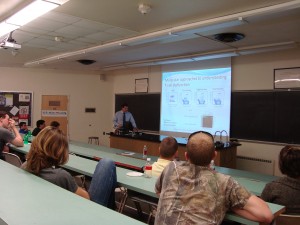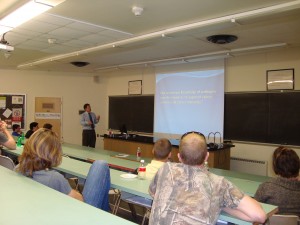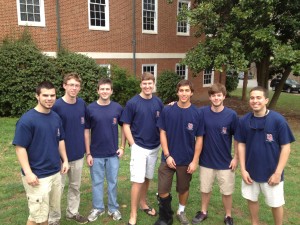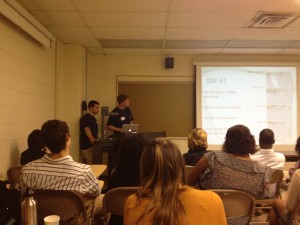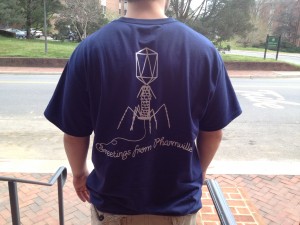On Thursday, March 29 Dr. Timothy Bullock, Associate Professor of Pathology and Human Immune Therapy Center Investigator at the University of Virginia, spoke to Hampden-Sydney Biology students and faculty as a part of the Biology Department Seminar Series. Dr. Bullock’s talk entitled “Invigorating T Cell Immunity to Cancer” focused on current challenges faced by researchers in eliciting T cell immunity to cancer as well as cutting-edge strategies for improving anti-tumor T cell immune responses. Dr. Bullock is an expert in this area of research and has received funding and numerous awards from foundations that include the National Cancer Institute, the Cancer Research Institute, the Melanoma Research Alliance, the Dana Foundation, and the National Institutes of Health. Dr. Bullock’s seminar was enthusiastic, informative, and engaging, and H-SC is lucky to have had the opportunity to learn from such a leader in the field of tumor immunology!

